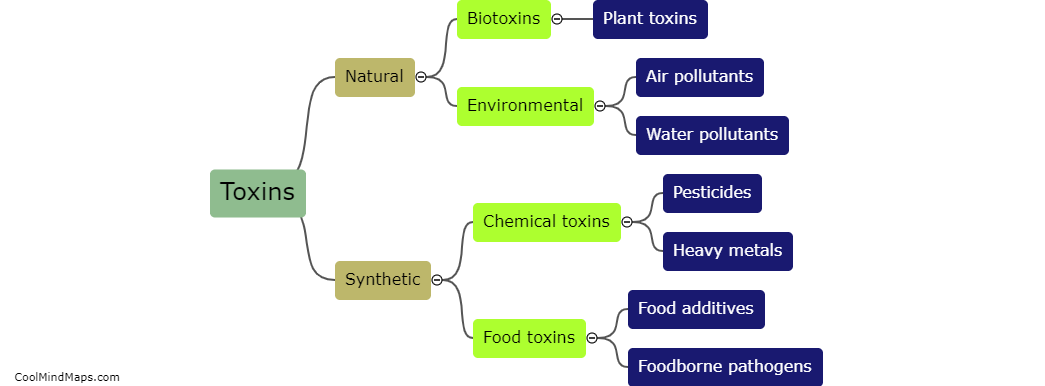How can neurotoxin exposure be treated?
The treatment for neurotoxin exposure depends on the specific toxin involved and the severity of the symptoms. In some cases, immediate medical intervention is necessary, such as administering antidotes or using specific medications to counteract the effects of the toxin. In more severe cases, treatments may focus on managing and alleviating symptoms rather than directly targeting the toxin. Supportive care, such as the use of IV fluids, can help manage dehydration or other complications that arise from neurotoxin exposure. Physicians may also recommend medications to help control seizures, muscle spasms, or other neurological symptoms. Additionally, removing the source of exposure and preventing further exposure is crucial for the long-term treatment and prevention of further complications. Close monitoring and follow-up care are often necessary to ensure the individual's well-being and recovery.

This mind map was published on 12 December 2023 and has been viewed 98 times.











